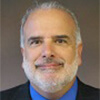Can I Trust an At-Home Test?

August 24, 2020
When the coronavirus pandemic closed test centers around the world, the demand for a virtual solution for high-stakes assessment was essential. We knew our test takers required an immediate solution to complete their exams in order to meet critical deadlines for their educational and professional journeys.
In just six short weeks, we were the first in the industry to deliver a remote proctored solution, with collaboration from industry leader, ProctorU®, for the GRE® General Test and TOEFL iBT® test, and have since expanded our offerings to include the HiSET® exam and Praxis® tests. Test takers and institutional score users alike rely on our assessments to provide an accurate and reliable measure of what test takers know and can do — so maintaining security and integrity of results continues to remain as important as utilizing the right delivery method.
But how do you take strategies built around decades of on-site testing and move them online, securely, and all in a span of weeks?
ETS has extensive experience modernizing assessment formats. In moving to remote solutions, we simply went back to basics, integrating rigorous protocols and extensive research about test-taker behavior with cutting-edge technology. We go to great lengths to continue to ensure the highest quality of our assessments and to deter risks. Here are just some of the ways we ensure test security during our at home exams:
Identity Verification
Before the exam begins, test takers identities are verified to ensure that the test taker showing up to complete the exam matches the name on the registration. This helps deter ‘professional test takers’ from completing the test and compromising test material. Test takers photos are matched against their official, government issued identification. Throughout the test, artificial intelligence (AI) is used to ensure the same test taker remains in the seat, and to guard against a second person entering the room. For tests, including TOEFL iBT test, we also utilize voice biometrics to match the voice of the test taker to recordings on file to prevent cheating and identify potential impersonation cases.
Environmental Scanning
Before test takers begin their exam, remote proctors conduct a thorough 360-degree review of the testing space using a web camera to ensure the test taker is alone and that there are no suspicious devices or materials present. This connection stays live for the duration of the session and is videotaped from start to finish, so ETS staff can also watch a test taker live, or on videotape at a later time. ProctorU staff diligently monitor for unusual behavior or movements. The proctor also scans the test taker’s device for software and browsers left open or operating on the computer to ensure no unpermitted software is actively running in the background during the duration of the test.
Artificial Intelligence
Layering human diligence with AI and process data, the proctor is supported by technology that continuously scans for irregularities, reinforcing and advancing the proctor’s oversight. The proctor has full visual access of both the test taker’s screen and visually observes them via webcam. The test can be cancelled immediately if there is any attempt to cheat, open a new browser, use unpermitted software or devices, or communicate with others during the test.
Process Data Analysis
In close partnership with our Research & Development data analysts and psychometricians, we analyze all testing activity and process data collected throughout each test session to identify patterns and aberrations that may help to detect suspicious behavior over time. This data is critical not only to test reliability, but understanding test-taker behavior so we can consistently make updates to the technology we use to ensure safety of our exams and test-taker privacy.
Our move to remote testing has given us an opportunity to learn, evolve and continue to meet our test takers where they are. Hundreds of thousands of test takers have successfully completed our at home exams to continue on their educational and professional journeys. By continuing to integrate our deep- rooted expertise built throughout the years in the field with emerging technology, we will continue to advance our capabilities and improve our test takers’ testing experiences.
Ray Nicosia is executive director of the Office of Testing Integrity at ETS.
